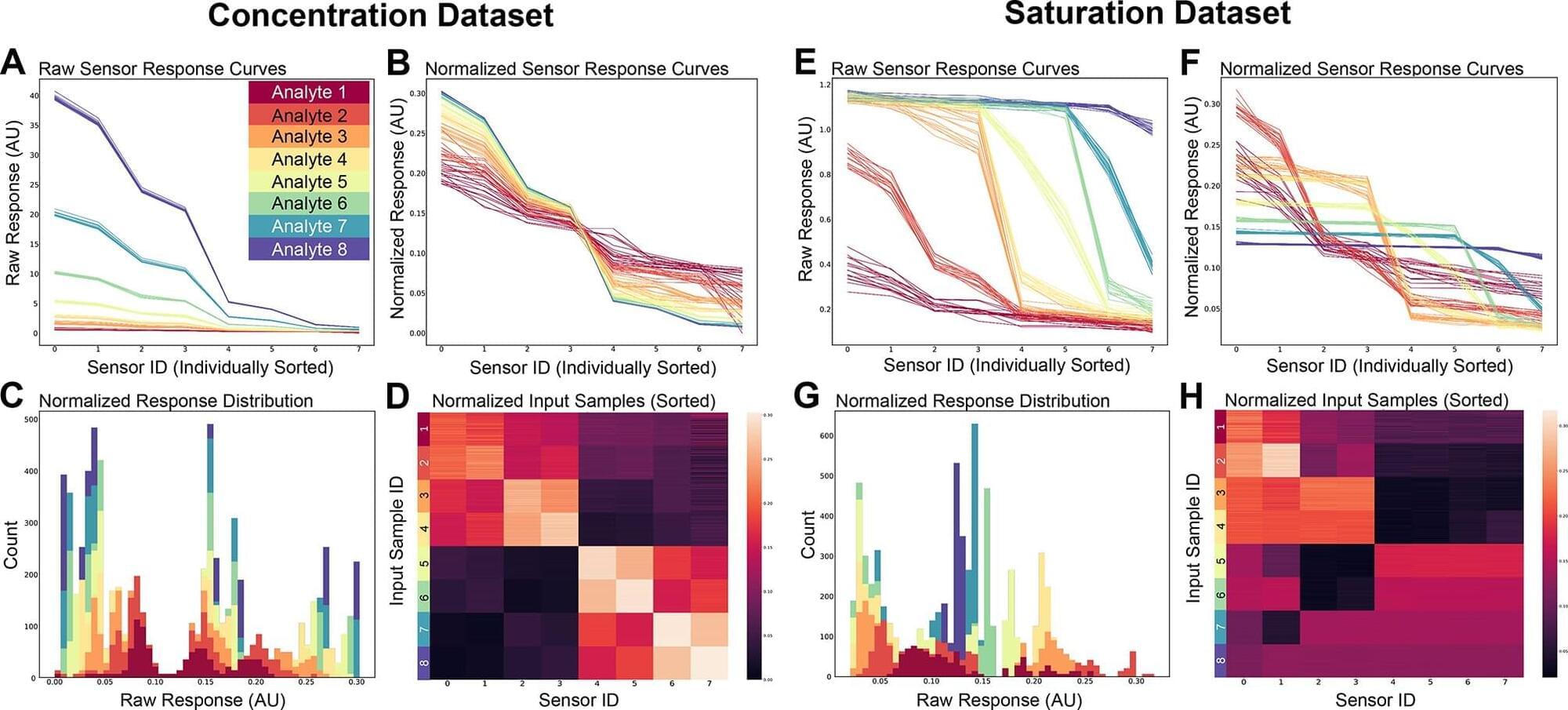Human brains are great at sorting through a barrage of sensory information—like discerning the smell of tomato sauce upon stepping into a busy restaurant—but artificial intelligence systems are challenged by large bursts of unregulated input.
Using the brain as a model, Cornell researchers from the Department of Psychology’s Computational Physiology Lab and the Cornell University AI for Science Institute have developed a strategy for AI systems to process olfactory and other sensory data.
Human (and other mammalian) brains efficiently organize unruly input from the outside world into reliable representations that we can understand, remember and use to make long-lasting connections. With these brain mechanisms as a guide, the researchers are designing low-energy, efficient robotic systems inspired by biology and useful for a wide range of potential applications.
